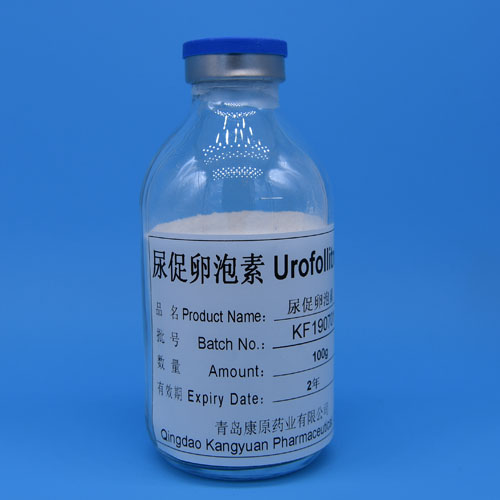Urofollitropin is a medication used to treat infertility in women,
particularly those undergoing assisted reproductive technologies such as in
vitro fertilization. It is a human follicle-stimulating hormone (FSH) that is
produced by recombinant DNA technology.
This medication is similar to the FSH hormone naturally produced by the
pituitary gland, which stimulates the ovaries to produce mature eggs. However,
in some infertility cases, the body may not produce enough FSH, leading to
irregular ovulation or the absence of ovulation altogether. Urofollitropin works
by increasing the amount of FSH in the body, thus promoting the growth and
maturation of ovarian follicles and increasing the chances of successful
ovulation.

Urofollitropin is administered via injection and is typically given daily
for several days at the beginning of a woman's menstrual cycle. The exact dosage
and duration of treatment varies depending on the individual's specific
infertility issues and treatment plan.
One potential side effect of urofollitropin is ovarian hyperstimulation
syndrome (OHSS), which can occur when the ovaries are overstimulated and produce
too many follicles. This can lead to symptoms such as abdominal pain, bloating,
and difficulty breathing. OHSS is a serious condition that requires medical
attention.
Overall, urofollitropin is a valuable medication for women struggling with
infertility. While its use may lead to some risks, the benefits of successful
ovulation and potential pregnancy often outweigh these concerns. With proper
medical supervision and care, urofollitropin has helped countless couples
achieve their dreams of starting a family.